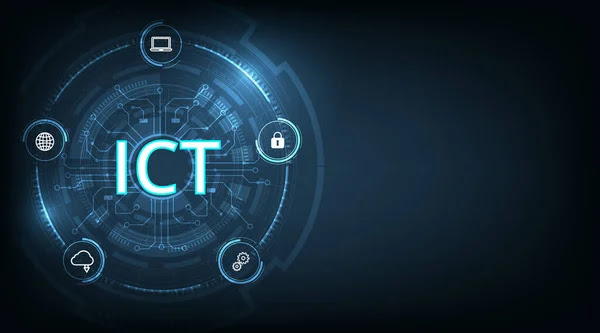Artificial Intelligence (AI) is transforming various aspects of our lives, and the field of education is no exception. As technology advances, so does the potential for AI to revolutionize traditional teaching methods, enhance personalized learning experiences, and optimize educational processes. In this article, we will explore how AI is making its mark in the realm of education, reshaping the future of teaching and learning, and revolutionizing EdTech.
Adaptive Learning and Personalization
One of the most significant contributions of AI in education is adaptive learning and personalization. AI-powered learning systems can analyze individual student data, such as learning preferences, strengths, and weaknesses. By considering this data, AI can deliver personalized learning experiences tailored to each student's unique needs and learning pace.
Adaptive learning platforms adjust the difficulty and content of lessons in real-time based on a student's performance and progress. This approach ensures that students receive the right level of challenge, allowing them to master concepts at their own pace and fostering a deeper understanding of the material.
Additionally, AI can identify learning gaps and recommend targeted interventions, enabling teachers to provide timely support and reinforcement to struggling students. This personalized approach enhances student engagement, boosts academic performance, and empowers students to take charge of their learning journey.
Intelligent Tutoring Systems
AI has given rise to intelligent tutoring systems (ITS), which simulate human tutors by providing personalized guidance and feedback to students. These systems utilize machine learning algorithms to analyze students' interactions, responses, and performance to adapt instructional content accordingly.
ITS can explain complex concepts, answer questions, and guide students through problem-solving processes. As students interact with the system, AI observes their strengths and weaknesses, refining its instructional approach to meet individual learning needs.
Intelligent tutoring systems are particularly beneficial in STEM (Science, Technology, Engineering, and Mathematics) subjects, where students often face complex concepts and challenges. By acting as virtual tutors, AI helps students navigate difficult topics, improving their understanding and retention of subject matter.
Automating Administrative Tasks
AI streamlines administrative tasks in educational institutions, freeing up valuable time for educators and administrators to focus on teaching and learning. AI-powered systems can handle routine tasks such as grading, attendance tracking, and scheduling.
Automated grading systems can assess objective answers, reducing the burden of grading for teachers and providing immediate feedback to students. This instant feedback fosters a deeper understanding of concepts and encourages continuous improvement.
AI-driven attendance tracking systems improve efficiency and accuracy, ensuring that student attendance records are up-to-date and readily accessible to educators and administrators. This automation optimizes school operations and reduces administrative overhead.
Safeguarding Online Learning
With the rise of remote and online learning, cybersecurity and academic integrity have become pressing concerns. AI is playing a crucial role in safeguarding online learning environments.
AI-powered proctoring systems can monitor students during online exams, detecting potential instances of cheating or academic dishonesty. These systems use facial recognition, eye-tracking, and behavior analysis to identify suspicious behaviors and flag potential violations.
Moreover, AI helps identify and combat plagiarism by cross-referencing student submissions with vast databases of academic resources. This ensures academic integrity and upholds the value of student achievements in an online learning environment.
Personalized Educational Content
AI is transforming the creation and delivery of educational content. With AI, content creators can develop personalized learning materials, interactive tutorials, and engaging multimedia resources.
Natural Language Processing (NLP) technology enables AI chatbots and virtual assistants to interact with students, answering their questions and providing real-time support. This personalized interaction enhances the learning experience and fosters student engagement.
Furthermore, AI can analyze vast datasets of educational content and student responses to identify the most effective teaching methodologies and materials. This data-driven approach enables educators to refine their teaching strategies and optimize learning outcomes.
AI in Special Education
AI's ability to personalize learning experiences is particularly beneficial in special education. AI-powered assistive technologies can cater to students with diverse learning needs and disabilities.
Speech recognition and natural language processing enable AI to facilitate communication for students with speech or language impairments. AI-driven text-to-speech and speech-to-text technologies assist students in accessing written content and expressing their thoughts effectively.
Incorporating AI into assistive technologies empowers students with special needs to participate fully in the learning process, removing barriers to education and promoting inclusivity in the classroom.
Challenges and Ethical Considerations
While AI brings remarkable advancements to education, it also raises ethical considerations and challenges. Data privacy is a paramount concern, especially when dealing with student information and learning data. Protecting student privacy requires robust security measures and adherence to data protection regulations.
Furthermore, concerns about AI bias must be addressed to ensure fairness and equitable access to educational opportunities. AI algorithms must be carefully designed and tested to minimize any unintended biases that may impact learning outcomes.
Educators and policymakers must be vigilant in navigating the ethical dimensions of AI in education, ensuring that AI technologies are transparent, accountable, and aligned with the principles of fairness and inclusion.
Conclusion
AI's integration in education represents a transformative leap forward in enhancing teaching, personalizing learning experiences, and optimizing educational processes. From adaptive learning and intelligent tutoring systems to automating administrative tasks and safeguarding online learning, AI is revolutionizing education and empowering students and educators alike.
Embracing AI in education requires a thoughtful and ethical approach, with a focus on data privacy, fairness, and inclusivity. By leveraging AI responsibly, educators and educational institutions can create a future of learning that is personalized, engaging, and equitable for all students, fostering a generation of learners ready to tackle the challenges of the ever-evolving world. As AI continues to advance, its role in education will continue to evolve, opening up new horizons for innovative and transformative learning experiences.



